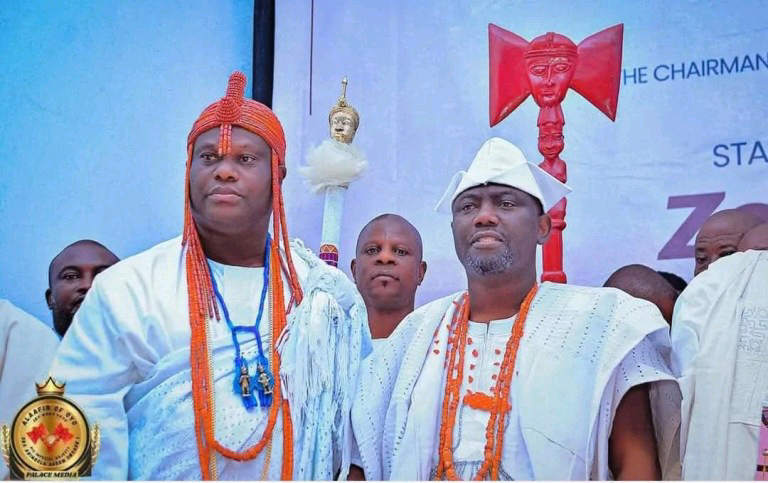From Ife to Oyo: The Colonial Curse of Indirect Rule Is Still Alive

The colonial history of Yorubaland reveals a complex hierarchy of traditional rulers established by the British colonial administration, which has had lasting effects on the sociopolitical landscape of the Yoruba people. According to colonial records, five Obas were designated as “first class kings” of the Southern Protectorate: Alaafin of Oyo, Alake of Egbaland, Awujale of Ijebu, Oba of Benin, and the Ooni of Ife. Additionally, four rulers were classified as second class: Olubadan of Ibadan, Owa, Osemawe, and Orangun. These rankings not only reflected perceived status but also determined salary grades, thereby institutionalizing a colonial hierarchy among traditional rulers.
This imposed hierarchy disrupted crucial historical balances within Yoruba society. The British colonialists, aiming to streamline governance through indirect rule, selectively recognized and elevated certain kings, notably the Alaafin of Oyo, as the supreme political leader of the Yoruba. The Ooni of Ife was maintained primarily as a spiritual leader, the priest of a vast pantheon of Yoruba deities. This artificial bifurcation of spiritual and political authority sowed seeds of rivalry and discord that persist today.
“Beat the Pressure: A Comprehensive Guide to Lowering Blood Pressure Naturally.”
Buy book from Gumroad or Paystack
Historically, the traditional Yoruba constitution positioned Ife as the spiritual source of the Yoruba people, Oyo as the political head, and Ibadan as the military command center of the once expansive Yoruba Empire. This triadic balance was designed to maintain harmony and mutual respect among the different power centers. However, colonial interference disrupted this equilibrium, favoring Oyo’s political dominance while relegating Ife’s spiritual authority to a secondary role. The colonial government’s favoritism towards the Alaafin created tensions that postcolonial Nigerian politicians later exploited, often aligning with one Oba or another for political advantage.
The rivalry peaked post-independence when the Ooni of Ife, particularly Ooni Adesoji Aderemi who ruled for over five decades, became a political ally of the Action Group led by Chief Obafemi Awolowo. This alliance was in opposition to the Adeyemi Alowolodu dynasty of Oyo, demonstrating how colonial legacies influenced contemporary political dynamics. The pendulum of influence swung between these two traditional institutions, with neither side willing to cede supremacy.
Following the Nigerian Civil War, the ascension of Adeyemi III as Alaafin marked a renaissance for Oyo. Both the Alaafin and the Ooni sought recognition beyond Yorubaland, extending their influence internationally—engaging with Yoruba diaspora communities in Brazil, Cuba, and the United States. For example, the Alaafin became the Imperial patron of Oyotunji, an African commune in South Carolina, symbolizing the continuing transatlantic cultural connections of the Yoruba people.
Legal battles over ceremonial titles further illustrate the enduring contest for supremacy. The Alaafin holds the exclusive right to confer titles with the suffix “…of Yorubaland,” a prerogative upheld by the courts. Notably, the Alaafin Adeyemi III successfully challenged the Ooni’s conferment of the title “Akinrogun of Yorubaland” on politician Tom Ikimi in court. Similar disputes arose involving prominent figures like MKO Abiola, underscoring the political significance of traditional titles.
At the heart of these conflicts lies a struggle between preserving Yoruba cultural history and adapting mythical power to modern political realities. While the colonial imposition of indirect rule sought to simplify governance by elevating certain kings, it inadvertently entrenched divisions that continue to influence Yoruba politics and inter-royal relations. The Alaafin’s recognized political suzerainty, though rooted in colonial administration, remains a contested norm, with implications for unity and progress in Yorubaland.
From the perspective of a chief of Ibadan—an important Yoruba city with its own military legacy—and as a descendant of the Adeyemi ruling house of Oyo, it is clear that titles are transient but legacies endure. Power must be exercised with awareness of progress, and mutual respect must supplant rivalry. The Yoruba people must reflect deeply (“Yorùbá ń’ronú”) to transcend colonial legacies and foster peace and development.
In conclusion, the colonial strategy of indirect rule has left a lasting “curse” on Yoruba traditional politics by institutionalizing divisions that were previously more fluid and balanced. Healing these fractures requires acknowledging the historical roles of all traditional institutions, promoting respect among them, and focusing on the collective heritage and future of the Yoruba nation rather than competing for supremacy.
— Aderemi Raji-Oyelade
Arole Adegboro
Mogaji Olubadan of Ibadan
💔 “She said she loved me. And for fifty-two years, I believed her.” 💔
Buy The Book "The Longest Lie: A Husband’s Journey Through Love, Betrayal, and Redemption" From Gumroad






